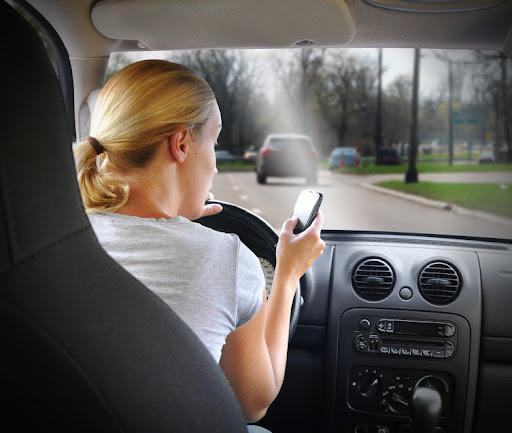Why texting is the new drunk driving

What’s more dangerous: Texting while driving or drunk driving?
The answer is texting.
Driving a vehicle while texting is six times more dangerous than driving while intoxicated, according to the National Highway Traffic Safety Administration. Because text messaging requires visual, manual, and cognitive attention making it by far the most alarming distraction.
The Virginia Tech Transportation Institute 2013 study found, texting while driving takes a driver’s eyes off the road for a minimum of 4.6 seconds and increases the chances of a crash by 23 per cent. To put that into perspective, if a vehicle is traveling at 90 km/h, the average driver doesn’t look at the road for about the length of an entire football field while sending a text.
The impairments associated with drunk driving and texting while driving are similar, both cause distraction that can result in following too closely, not being able to brake on time or weaving into oncoming traffic.
A study by the Transport Research Laboratory showed that texting while driving slowed a driver’s reaction time more than drinking alcohol. Driver’s reaction times decreased by 46 per cent while making a call, 37 per cent when texting, and 27 per cent during hands-free calls. Those who were drinking and driving at the limit of .08 had reaction times decrease by 13 per cent. The National Safety Council reports that 1 out of 4 car accidents are caused by texting while driving.
Now with technology at our fingertips and smartphones embedded in our daily lives, drivers are becoming more tempted to send and read text messages that they assume to be ultimately harmless.
Texting while driving is the leading cause of teenage deaths, however the majority of teens continue to read texts and emails, post to social media, and surf online while driving. According to a U.S. study by Cohen Children’s Medical Center, 11 teenagers die every day due to texting while driving. And approximately 300,000 are injured every year compared to 282,000 injured from intoxicated drivers.
Due to the escalation of deaths and accidents caused by distracted driving laws have come into place to ban the use of hand-held devices.
In Canada, all provinces and the Northwest Territories have banned both talking on hand-held phones and texting while driving. In Ontario, the fines and penalties for distracted driving include $400-$1000 and 3 demerit points.
If you endanger others because of any distraction, including both hand-held and hands-free devices, you can also be charged with careless driving. If convicted, you will automatically receive:
- Six demerit points
- Fines up to $2,000 and/or
- A jail term of six months
- Up to two-year licence suspension
You can even be charged with dangerous driving (a criminal offence), with jail terms of up to five years.
Some easy and life-saving tips for avoiding texting while driving include:
1) Turn off your phone – this has to be the easiest and surest way to make sure you aren’t distracted by incoming texts or calls. Even go a step further and put your phone in the back seat or glove compartment.
2) Download apps – there are many apps to choose from that will disable your phone from receiving text message, email, and phone call alerts.
3) Educate yourself – learn about the risks of texting and driving and how easy it is how seconds of distraction can mean life or death, not just for you but for others as well.
The hazards of distracted driving are becoming more recognized, but it has not prevented all drivers from using mobile devices. If you or a loved one has been a victim of distracted driving, our lawyers at Harris Law are here to help you get the compensation you deserve. Contact us for a free, one-hour consultation.













